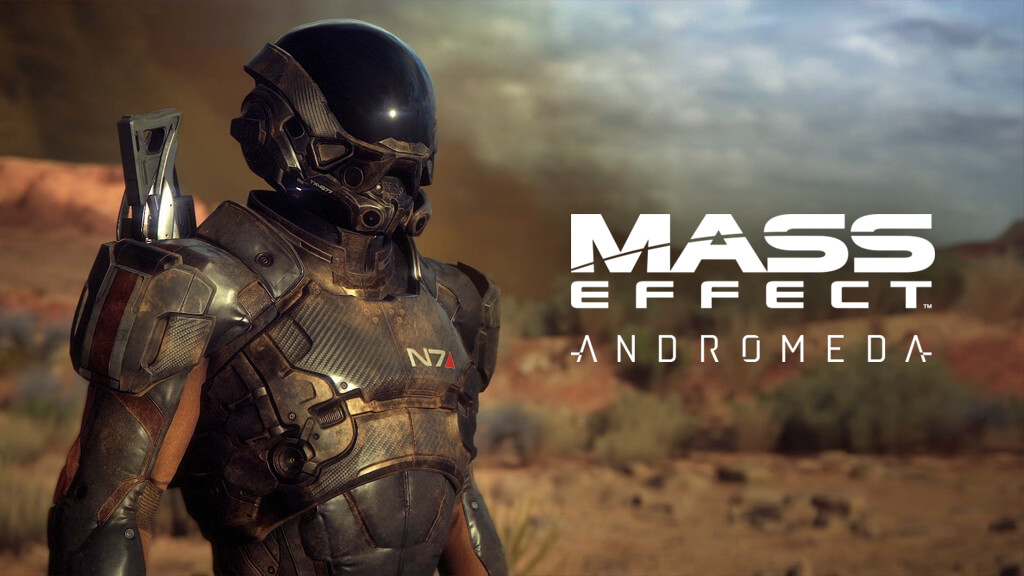“Mass Effect: Andromeda” is a beautiful disappointment
Gallery

Since the release of “Baldur’s Gate” in 1998, video game developer BioWare has been synonymous with story-driven role-playing games. For years, they honed their craft, launching their original sci-fi trilogy with 2007’s “Mass Effect.” The three “Mass Effect” games went on to achieve hundreds of awards and all but universal acclaim, and were hailed as having advanced video game storytelling more than any other series. When “Mass Effect 3” received its last update in 2013, fans said goodbye to the trilogy’s hero, Commander Shepard, and eagerly awaited their next chance to explore the stars.
With years of anticipation and hope leading up to the release of “Mass Effect: Andromeda,” it was doubtful that any game could truly satisfy all expectations. Even with expectations thus tempered, “Mass Effect: Andromeda” is a disappointing affair that fails to live up to the pedigree of its name.
“Mass Effect: Andromeda” is not necessarily a bad game. The combat is fast and much smoother than previous versions, and the addition of a jetpack creates new and interesting tactical options. The scenery itself is beautiful, giving players many expansive and interesting alien worlds to explore. But when people play a BioWare game, they expect to be engrossed in a rich story and meet a variety of fascinating characters. In this regard, “Andromeda” misses the mark.
The player takes on the role of one of the Ryder siblings, two young adults joining their father in the Andromeda Initiative, an organization setting out to colonize the Andromeda Galaxy. After spending centuries in stasis traveling from the Milk Way, the player awakens in Andromeda only to encounter disaster. Within hours, it becomes obvious that the supposed “golden worlds” that were to house the races of the Milky Way are uninhabitable. The player finds him or herself instated as the new Pathfinder, charged with finding a new home for the people of the Milky Way before they run out of resources. This mission leads them across the stars, and brings them face-to-face with new civilizations, both friendly and hostile. In “Andromeda,” the player is the alien, and it’s up to him or her to determine the course of the Andromeda Initiative.
The open-world nature of the game does the story no favors. One of the greatest criticisms against the original “Mass Effect” was the repetitive nature of planetary exploration. In response, BioWare crafted “Mass Effect 2” and “Mass Effect 3” as tighter, more cinematic experiences, focusing on telling contained stories rather than giving their players the freedom to make their own path. For the most part, this decision paid off brilliantly.
With “Andromeda,” BioWare tries its hand again at capturing the magic of open-world games. The last iteration of its fantasy series, “Dragon Age: Inquisition,” made the same choice, though the game’s open-world elements received a lukewarm reception. The additional resources and care devoted to exploration are obvious in “Andromeda,” but the writing as a whole suffers because of it. Most missions are shallow, consisting of little more than running around the map fighting enemies until a voice informs the player that the mission is now over. The majority of advancement is communicated to the player through a rising score on each planet, but increasing a planet’s rating has little, if any, visible impact in the game.
Even the companions, normally the shining jewel in a BioWare role-playing game, are flat and uninspired. Many seem to exist to either serve as examples or subversions of the stereotypes of their species. The writers attempt to balance the need to introduce the world to newcomers with the need to give veterans something new, but the result is writing that is largely simplistic and uninteresting. The game is obviously filled with callbacks to the trilogy, but they tend to be so blatant that it feels like the game is afraid to stand on its own. “Andromeda” frequently hits almost identical plot and tone points as “Mass Effect 3,” but whereas “Mass Effect 3” was an emotional and exciting send off for characters that players had known for years, these moments in “Andromeda” feel like a cheap attempt to evoke emotions it hasn’t earned.
The “loyalty missions” of “Mass Effect 2” have returned, and tend to be some of the strongest moments of the game, giving the player a chance to have some dynamic interactions with their squad. However, due to the structure of the game, these moments feel less like high points in the story and more like breaks from the monotony of the overall game.
BioWare has a reputation of being the gold standard in the industry as far as representation in their games. In “Dragon Age: Inquisition,” BioWare included a diverse array of characters, with its romances and inclusion of a wholly realized trans character being lauded for offering players a variety of immersive stories to pursue. “Andromeda” is due no such accolades, with criticisms of its representation of transwomen and gay men being strong enough to earn a promise from BioWare that they will fix these issues.
To their credit, this has been BioWare’s response to much of the criticism it has faced. On release, facial animations were derided across the internet, but a recent patch vastly improved on them. The company has stated its commitment to continuing to address player concerns and improve the game, though this gives little comfort to those who have already sunk dozens of hours into the massive world. Again, “Andromeda” is not a bad game. It has enjoyable and exciting moments, but these only serve to highlight the slog that is the rest of the game. From another developer, this might be considered an acceptable entry to a new series, but coming from BioWare, and as the successor to the “Mass Effect” series, “Andromeda” serves as an argument for never leaving the Milky Way.
